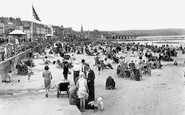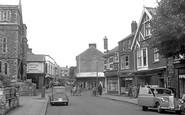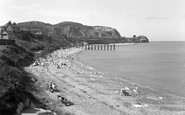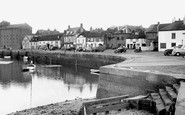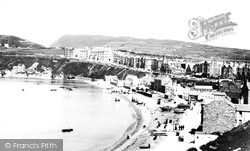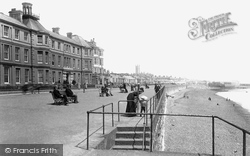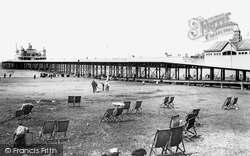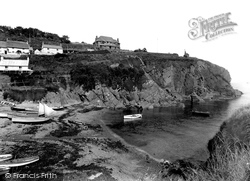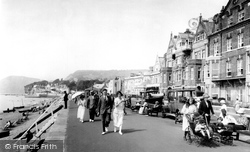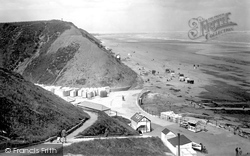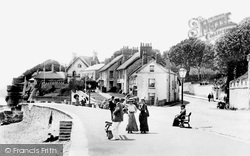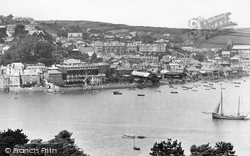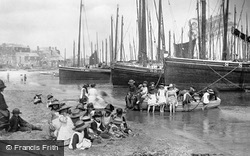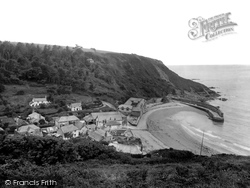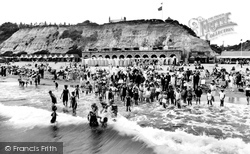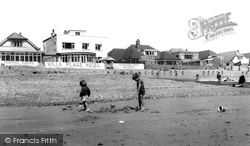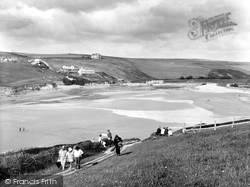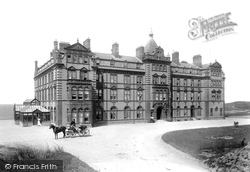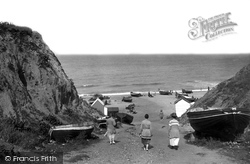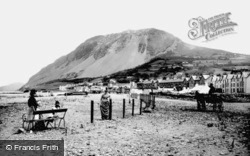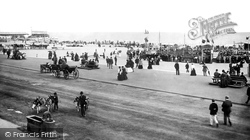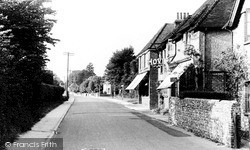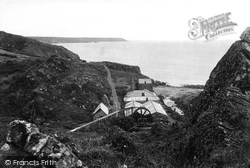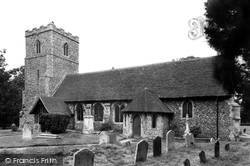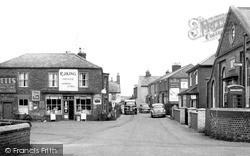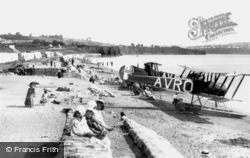Places
12 places found.
Those places high-lighted have photos. All locations may have maps, books and memories.
Photos
191 photos found. Showing results 501 to 191.
Maps
115 maps found.
Books
1 books found. Showing results 601 to 1.
Memories
1,374 memories found. Showing results 251 to 260.
Childhood Memories
As a family we would holiday in Weymourth every year from about 1958-1963. We used to stay in a bed and breakfast owned by a Mrs Walkadine. As I was so young my memories revolve around the wonderful beach, the donkeys and egg ...Read more
A memory of Weymouth
Childhood Memories
I first visited Weymouth as a small child during the second world war to see my rather strict widowed maternal grandmother who lived at 10 Carlton Road South, within walking distance of the beach. I particularly recall the ...Read more
A memory of Weymouth in 1945 by
Childhood Memories
We came to Littlehampton in the Summers of 1957-61. We stayed at Mrs Squires B n B in Albert Road. I spent my time either on the beach, the fun fair or just walking around the town (I was about 8 years old at the time). My dad ...Read more
A memory of Littlehampton by
Childhood Memories Kessingland Late 80’s 90’s
So as a young child I would always go on holidays with my Nan and Grandad. We started going to Kessingland we had a small caravan {touring caravan} so I was very excited to go to a new place. I lived ...Read more
A memory of Kessingland by
Childhood Memories In The Mumbles
I was born in London, but my Mother came from the Mumbles, so several times a year we took the train from Paddington on our journey to Swansea. With a large family of grandparents, aunts, uncles and cousins, ...Read more
A memory of Mumbles, The by
Childhood Memories Of Penrhyn Bay
My grandmother and grandfather lived at "Oaklands", in Maesgwyn Road, opposite a corrugated iron church. The road was unmade and beyond the church to the sea was a large meadow where cattle and sheep grazed. On ...Read more
A memory of Penrhyn in 1930
Childhood Memories...
I remember most of these places shown in the photographs and as I look at them memories flood back! I remember learning to swim by the steps on the quay and drinking cider whilst hiding amongst the sprat boxes piled ...Read more
A memory of Wells-Next-The-Sea in 1963 by
Childrens Beach Events Mid 1950s
I can remember organised races and games, promoted by the publishers of 'Sunny Stories' and the Hulton Press comics, which took place on Viking Bay or Louisa? Bay. You needed to have a copy of one of the papers ...Read more
A memory of Broadstairs in 1954 by
Childrens Convalescence Home
I worked as a pre student nurse at the children's home. We took children from the West Yorkshire area suffering from Asthma and Eczema. Children from the age of 2 yrs until 12 yrs. A very strict Matron, scary in ...Read more
A memory of Hornsea in 1958
Childrens Convalescent Home
My memory of Budleigh Salterton is spending a couple of months or so at a childrens convalescent home in the spring/early summer of 1955. I revisited the town a few years back to find that the old childrens ...Read more
A memory of Budleigh Salterton in 1955 by
Captions
1,131 captions found. Showing results 601 to 624.
The cottages and buildings along the beach belong to the earliest settlement, while the later Victorian developments are strung out along the higher ground.
A lady with a pram attends her child, while a few people are on the beach below. The major building is the Queens Hotel.
The trackway used in its construction can still be seen on the beach.
The sails in the after parts of the boats drawn well up onto the beach are raised, assisting them to dry.
As the railway did not arrive until 1874, the town remained unspoilt by mass tourism, especially as the beach was shingle.
The little beach huts and tearooms look cosy enough sheltering under the cliff, but as the name implies it would be a different matter on the cliff top.
The sea wall was constructed in 1835 and the shingle beach can be clearly seen. Overlooking the sea are some fine old cottages, exuberant in design and with bulging thatch.
With only a small beach to boast of it never attracted hordes of holidaymakers. The 19th-century church (right) is Holy Trinity.
This delightful scene shows a group of youngsters enjoying the harbour beach. Behind them are classic St Ives fishing boats, known as luggers because the type of sail they used was called a lug sail.
The old limekiln stands on the beach between the curving pier and the fish palace.
Beach huts, which could be rented on a weekly basis, have become a feature of the seaside scene.
The lack of people on this quiet beach at Elmer, near Bognor Regis, does not appear to distract from the enjoyment of these two young children.
This modest resort of broad beaches and spectacular rock scenery can be reached along the sands from Newquay.
Opened in June 1900, the immense hotel block dominates Fistral Beach on the edge of Newquay. A horse and open carriage are about to take guests on an excursion.
At East Runton you could walk out along broad stretches of beach and enjoy digging for fossils in the soft cliffs, a pastime made popular by the Victorians.
The beach vans indicate where the sands actually start!
On the right is the seated enclosure for the Beach Concert Party, whose playbills offered 'a unique performance of songs, amusements, minstrels, magic and performing dogs!'
This isolated church near a beautiful beach was probably established during the 6th century, but not built in stone until after 1300.
All along the coastal belt, but rarely extending more than a few miles inland, rounded beach flints or cobbles were used for walls and every type of building.
Lying to seaward of Poltesco, the rocky little beach of Carleon Cove had its own pilchard fleet until the 19th century, when it became the home of the Lizard Serpentine Company.
This was restored in 1875 and faced with beach pebbles, and a curious vestry was added to the south side. Internally the beams that supported the rood screen can still be seen.
This photograph shows the village end of the Beach Road, with two general stores, both carrying many advertisement signs.
that 'Redcar is adapted to the debilitated class of invalids not only by reason of its powerful tonic atmosphere and excellent bathing, but because of the natural facilities offered by its extensive beach
Seaplanes from the newly-formed Royal Air Force are pulled up on the beach - perhaps being used either for recruitment or anti-submarine duties.
Places (12)
Photos (191)
Memories (1374)
Books (1)
Maps (115)

